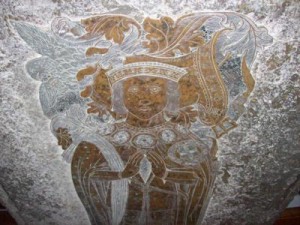 As you will know, I am recording an “on this day in Tudor history” video for the Anne Boleyn Files and Tudor Society YouTube channel every day of 2019. Well, today’s video is about the death of Thomas Boleyn, father of Queen Anne Boleyn, on this day in 1539, so I thought I’d share it with you.
As you will know, I am recording an “on this day in Tudor history” video for the Anne Boleyn Files and Tudor Society YouTube channel every day of 2019. Well, today’s video is about the death of Thomas Boleyn, father of Queen Anne Boleyn, on this day in 1539, so I thought I’d share it with you.
Here are some links to articles that you may also find interesting:
- Remembering the Real Thomas Boleyn
- 29 June 1536 – Thomas Boleyn loses the office of Lord Privy Seal
- 8 July 1503 – Thomas Boleyn escorts Margaret Tudor to Scotland
My article on the spellings of Boleyn can be found here.
Here is my video on Thomas and Elizabeth Boleyn: